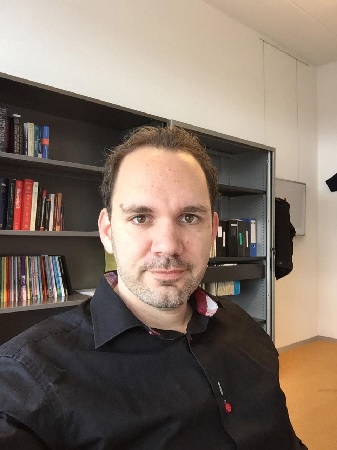Prestigious grant for research into sleep deprivation
University of Groningen neuroscientist Robbert Havekes and colleagues from Germany, South Korea and the US have secured a grant of EUR 1.25 million from the Human Frontier Science Program (HFSP), which funds interdisciplinary research in the life sciences. Their application on the role of the biological clock in the effects of sleep deprivation was one of nine applications, out of a total of 215, to be awarded a grant.
Havekes is pleased with the award: ‘This is a global competition, and anyone from the life sciences can enter, which makes it an achievement to be in the top four percent.’ The HFSP focuses on research at frontiers: ‘The group must be interdisciplinary and intercontinental, and the application must also be at the frontiers of science. High-risk research is welcomed.’

For Havekes this means research into the negative effects of sleep deprivation. He has studied the impact of too little sleep on memory and learning for some time now. He will employ a different approach in the new research: optogenetics. This technique allows researchers to modulate neuronal function using light-sensitive proteins. Havekes will use this approach to modulate the activity of ‘clock genes’.
Manipulation
‘My German colleague develops light-sensitive constructs that allow us to transiently and locally activate or inactivate genes in the mouse brain that are involved in the biological clock.’ The idea is that sleep deprivation disrupts these genes, and that this is one reason why we perform badly after a short night. ‘This technique allows us to manipulate the molecular clock, so we will be able to investigate for the first time whether changes in the molecular clock contribute to the negative impact sleep deprivation on brain function.’
Havekes will conduct experiments that involve shining a laser through a thin fibre optic into the hippocampus (the region of the brain that is important for memory). This will enable him to manipulate the clock genes specifically in this region. ‘It could be that if we give these clock genes in the hippocampus a nudge, the negative effects of sleep deprivation will disappear.’ And he will also be able disrupt the biological clock in mice without sleep deprivation. ‘The question is whether they too will develop memory problems.’
Equipment
A researcher in the US will conduct similar experiments, but then on the visual cortex, the region of the brain that processes the images that we see. A researcher from South Korea is also involved: he is developing theoretical models for the preparation and analysis of the experiments.
Havekes, who works at the Groningen Institute for Evolutionary Life Sciences, will receive about a quarter of the allocated funds. He will use these to appoint a PhD student and buy equipment for optogenetic experiments. Taken together, this work should provide a fundamental understanding of the effect of sleep deprivation on the brain. ‘We hope, of course, that we will be able to use all this knowledge to actually solve these problems. But that’s still a long way away to go.’
Apart from Havekes, the team consists of Prof. Dr. Matias Zurbriggen (Germany), Dr. Sara J. Aton (United States), Dr. Jae Kim (South Korea).
More news
-
14 January 2026
What the smell of the sea does to the clouds above Antarctica
